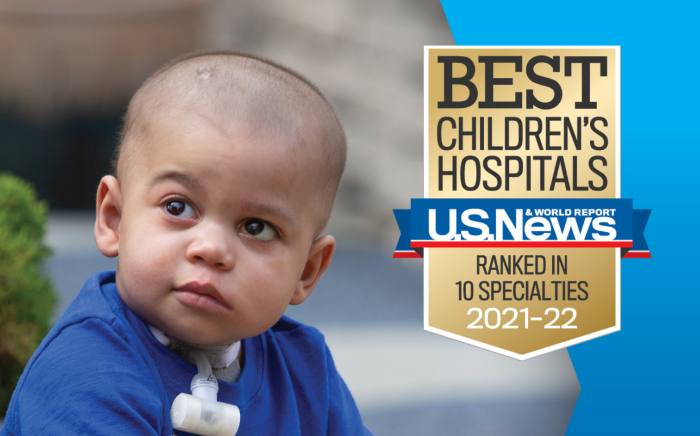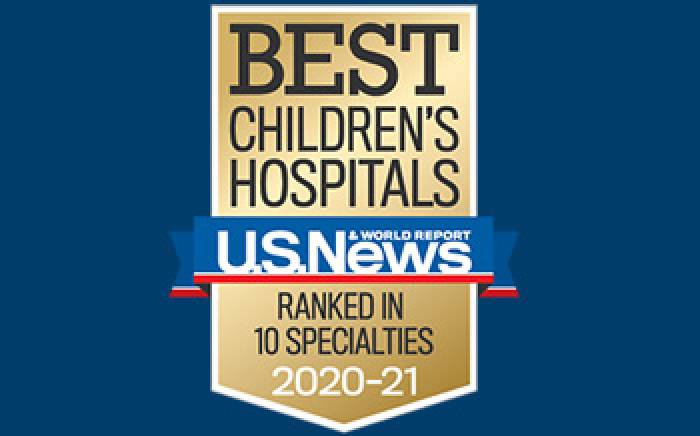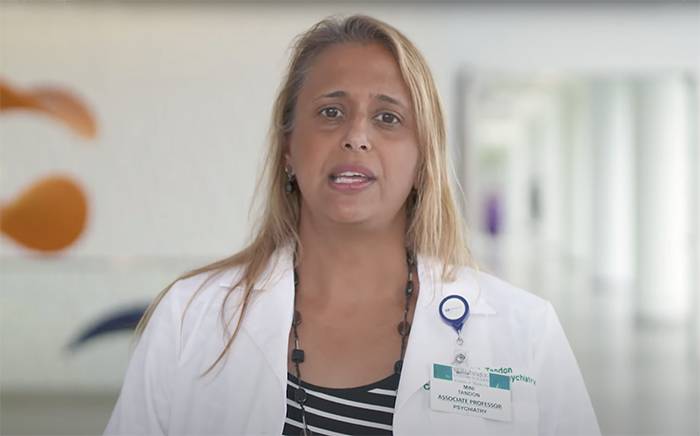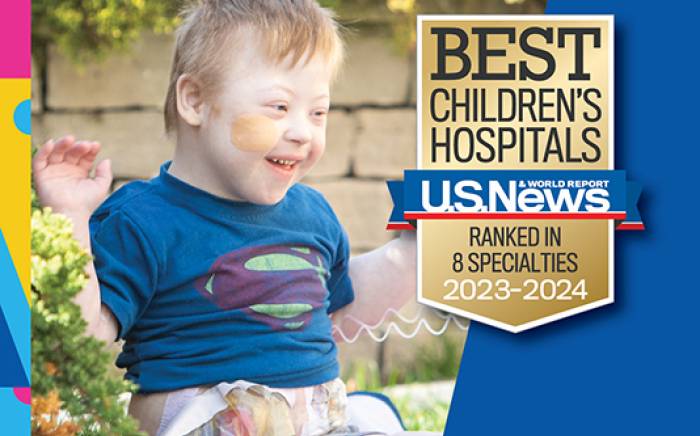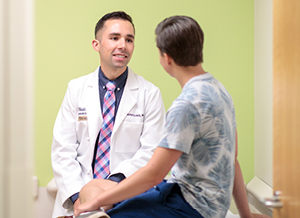 Washington University physicians at St. Louis Children’s Hospital created the Differences of Sex Development (DSD) Clinic to provide in one location specialized medical care to patients with these congenital conditions.
Washington University physicians at St. Louis Children’s Hospital created the Differences of Sex Development (DSD) Clinic to provide in one location specialized medical care to patients with these congenital conditions.
Depending upon individual needs, patients and their families meet with pediatric specialists in endocrinology, urology, gynecology, clinical genetics and genomics, adolescent medicine, reproductive endocrinology and psychiatry—all in one office. Based upon its findings, the team then provides a collaborative, ethically sound treatment plan with long-term, follow-up care recommendations.
“It’s widely known that a multidisciplinary team model offers the highest-quality care when we are dealing with complex medical conditions such as DSD,” says Christopher Lewis, MD, Washington University pediatric endocrinologist and medical director of the DSD Clinic. “In addition to the expertise involved, we find that parents derive much more comfort knowing a large team of specialists in their fields have thoroughly evaluated their child and developed recommendations based on the child’s individual diagnosis.”
A CHANGING APPROACH TO CARE
DSD are variations in the development of sexual organs and other sex-related structures in relation to sex chromosomes, hormones and other developmental factors. Their frequency is difficult to determine because a consensus has yet to be reached as to what differences are considered outside the norm.
“Our closest estimate is that about one in every 2,000 births involve a child whose genitals look different enough to make assigning the child’s sex unclear,” says Dr. Lewis. “However, some studies suggest that if we include any sort of anomaly related to sex, gonads or chromosomes, the estimate would be closer to one in 100 to one in 150.”
According to pediatric endocrinologist Abby Hollander, MD, clinical director, division of pediatric endocrinology and diabetes at Washington University, in recent years there have been significant changes in attitudes toward and treatments for DSD.
“One of the biggest changes is how much more information is made available to patients and their families throughout the process of diagnosis and treatment,” she says. “Until the 1980s there was generally a much more paternalistic view in medicine, with the belief that too much information was harmful to patients or parents. In fact, people usually want as much information as they can get so they can make informed decisions, and this is how we approach patient care in our DSD Clinic.”
Another significant change involves decisions regarding corrective surgery. Previously the focus was on normalizing the appearance of the baby to provide less stress for the parents. Often the gender assignment was based on the baby’s genital appearance rather than the chromosomal gender. The DSD Clinic team supports the current approach of delaying medically unnecessary surgery until patients can have some input into when surgery is done or whether it is done at all. The patient has become the focal point of care, rather than the parents.
“There are instances in which infants need to have surgery because they have anatomic issues that predispose them to urinary tract infections or their bladder is not draining properly and surgery is necessary to protect their kidneys,” says Washington University surgeon Douglas Coplen, MD, director of pediatric urology at Children’s. “But even when surgery is needed, the goal is to not remove any structure or organ that would result in an irreversible condition before patients can help decide their future.”
DETERMINING THE GENETIC CAUSE OF PATIENTS’ DSD
An important component to the DSD Clinic’s resources is the expertise of its pediatric geneticists, Washington University physicians D. Kathy Grange, MD, and Jorge Granadillo DeLuque, MD. Determining the genetic cause of a patient’s DSD can provide vital information for both patients and their parents.
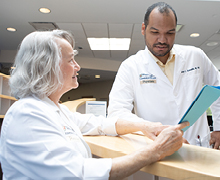 “Depending on a patient’s needs, we offer chromosomal and molecular genetic testing,” says Dr. Grange. “Pinpointing the genetic cause can provide valuable insight into treatment options and possible other health concerns associated with that particular DSD. For example, patients diagnosed with Denys-Drash syndrome are at high risk for developing kidney disease, including Wilms tumor and renal failure. Having this information significantly impacts their medical management.”
“Depending on a patient’s needs, we offer chromosomal and molecular genetic testing,” says Dr. Grange. “Pinpointing the genetic cause can provide valuable insight into treatment options and possible other health concerns associated with that particular DSD. For example, patients diagnosed with Denys-Drash syndrome are at high risk for developing kidney disease, including Wilms tumor and renal failure. Having this information significantly impacts their medical management.”
For parents, genetic testing can help with family planning. “In some infants their DSD is a sporadic problem and the chance of another child being similarly affected is low,” says Dr. Grange. “In other cases, the DSD results from a recessive gene abnormality; if each parent is a carrier, they have a 25 percent chance of having another child with the disorder. It’s very important for them to know this risk of recurrence.”
Even in cases where a genetic cause for a DSD cannot be identified, there exists the possibility of new genes being discovered. For that reason, Drs. Grange and Granadillo DeLuque continually reanalyze data in the hopes of providing definitive answers to families.
SUPPORT FOR PATIENTS AND PARENTS
A DSD can be an emotional and confusing diagnosis for children and families. In addition, there are parents’ cultural, religious and social beliefs to consider. The DSD Clinic offers counseling to both patients and parents as they work through the psychosocial aspects associated with the conditions.
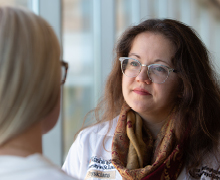 “Parents are greatly concerned about learning constructive ways to talk to their children about any physical differences without putting them in a position of being bullied or shamed,” says Andrea Giedinghagen, MD Washington University pediatric psychiatrist at St. Louis Children’s Hospital. “We act as facilitators for these conversations. We encourage parents to begin talking with their toddlers about how everyone has differences—in hair color, height, weight and body shape—and that having different private parts is okay. It’s an ongoing conversation they need to have as their children grow and mature.”
“Parents are greatly concerned about learning constructive ways to talk to their children about any physical differences without putting them in a position of being bullied or shamed,” says Andrea Giedinghagen, MD Washington University pediatric psychiatrist at St. Louis Children’s Hospital. “We act as facilitators for these conversations. We encourage parents to begin talking with their toddlers about how everyone has differences—in hair color, height, weight and body shape—and that having different private parts is okay. It’s an ongoing conversation they need to have as their children grow and mature.”
Identifying depression and anxiety in children is another important aspect of the counseling provided by Dr. Giedinghagen and her colleagues. “Children worry about whether they should tell their friends about their condition, or if they should tell them at all. We talk a lot about the difference between secrecy and shame versus privacy,” she says. “These conversations with parents and children are vitally important. When ongoing counseling is needed, we make referrals to psychologists and psychiatrists in the family’s local communities so that they continue to get the help they need.”
RESEARCHING DSD
Washington University School of Medicine is a member of the Disorders of Sex Development Translational Research Network, a group of 12 children’s hospitals nationwide. The network’s goal is to gather data that help health care teams develop standardized procedures and guidelines for evaluating patients with DSD and improving their care. Washington University genomicist Ina Amarillo, PhD, is the School of Medicine’s site co-principal investigator.
“Because DSD are rare, this research network provides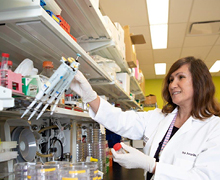 participating medical centers the means of combining our knowledge and sharing experiences to develop a greater understanding of these conditions,” says Dr. Amarillo. “The School of Medicine is contributing to the network’s national registry as well as establishing its own tissue and DNA repository.”
participating medical centers the means of combining our knowledge and sharing experiences to develop a greater understanding of these conditions,” says Dr. Amarillo. “The School of Medicine is contributing to the network’s national registry as well as establishing its own tissue and DNA repository.”
Dr. Amarillo is a member of a Washington University research team conducting a retrospective review of DSD cases seen at Children’s since 1995. The goals are to determine what diagnoses and types of DSD are seen most, how each type has been managed, if other medical problems are associated with DSD types, how patients fare in the long term, and if any challenges can be better addressed.
“The advanced technology currently available for genomic studies is enabling us to reinvestigate data sets collected in the past, which may lead to significant findings related to the causes of these conditions,” says Dr. Amarillo.
REFERRING PATIENTS
The complexity of DSD means there is no one-size-fits-all treatment program for any individual patient. Physicians referring patients to the DSD Clinic receive a detailed report that includes the team’s overall impression of the patient’s condition and the current and future therapeutic options available in regard to medical, surgical and mental health aspects of care. In addition, recommendations are provided regarding the best approach to gender rearing and support for the patient and family.
The Differences of Sex Development Clinic meets the third Wednesday of every month in Suite 2A at St. Louis Children’s Hospital. To refer a patient, call Children’s Direct at 800.678.HELP (4357) and request a transfer to the endocrinology office.

